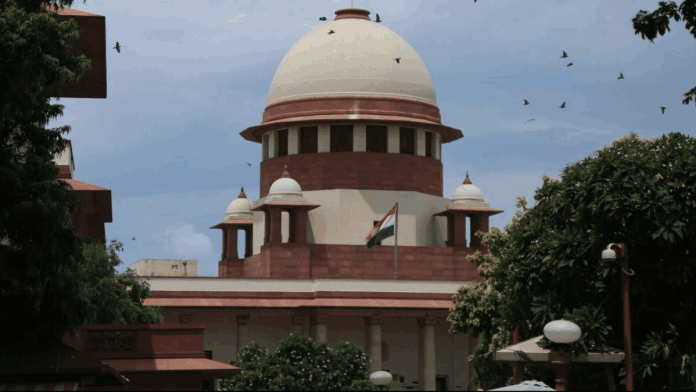New Delhi: The Supreme Court on Wednesday directed the central government to prepare a comprehensive manual on how police officers should brief the media during a criminal investigation so that the coverage was fair and unbiased.
A bench of Chief Justice D.Y. Chandrachud and Justices P.S. Narasimha and Manoj Misra asked the Union Ministry of Home Affairs to prepare the handbook within three months, after taking inputs from state police chiefs and the national human rights body.
The Supreme Court’s order Wednesday was on the protocols the police must adhere to when holding media briefings on a criminal investigation.
In its order, the top court said updated guidelines were necessary as the existing ones were over a decade old. It observed that coverage of crime had evolved since then with both the print and electronic media playing a significant role.
The apex court said: “The guidelines by Union were prepared almost a decade ago on April 1, 2010. Since then, with the upsurge of reporting of crime not only in print media but also electronic media, it becomes important for there to be a balance.”
The court underscored the delicate balance between the fundamental right to free speech and expression, the rights of the accused to a fair investigation, and the privacy of victims.
The judges noted that media reportage which implicated an accused was unfair. “Biased reporting also gives rise to public suspicion that the person has committed an offence. The media reports can also violate the privacy of victims,” the judges said.
The court also said the nature of the disclosure cannot be uniform since it must “depend upon the nature of the crime and the participating stakeholders including the victims, witnesses and accused. The age and gender of the victim and accused would have a significant bearing on the nature of the disclosure.”
The court had earlier appointed Senior Advocate Gopal Sankaranarayanan to help with the case. He said while the media could not be retrained, the sources of information, which are sometimes government entities, could be regulated. “Because the source is the state. Even in the Aarushi case, so many versions were given to the media,” Sankaranarayanan added.
The advocate also submitted in court a set of references for the police manual, which he said was taken from the Media Relations Handbook of the Los Angeles Police Department and the New York Police Department, the Communications Advisory of the Association of Chief Police Officers of the UK, as well as the CBI manual.
The case will be next heard in the second week of January after the Centre prepares the handbook.
(Edited by Tikli Basu)
Also read: SC refuses to interfere with Delhi govt blanket ban on firecrackers






